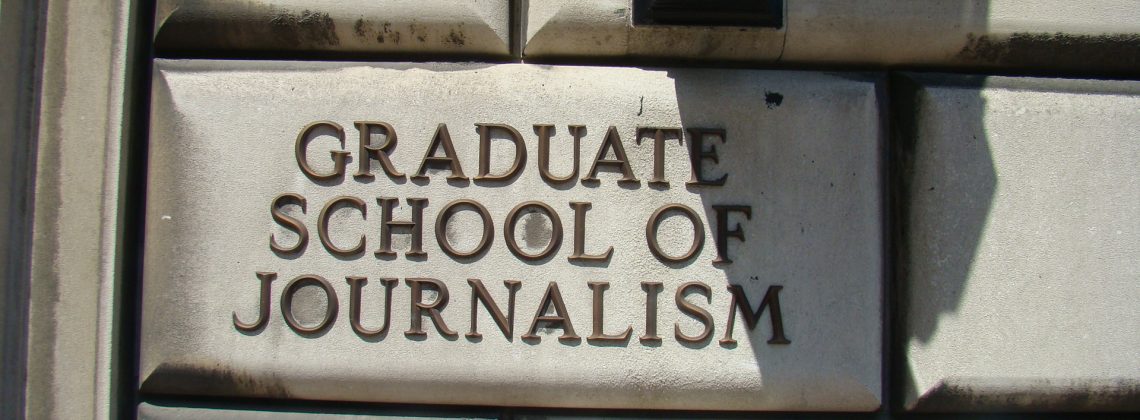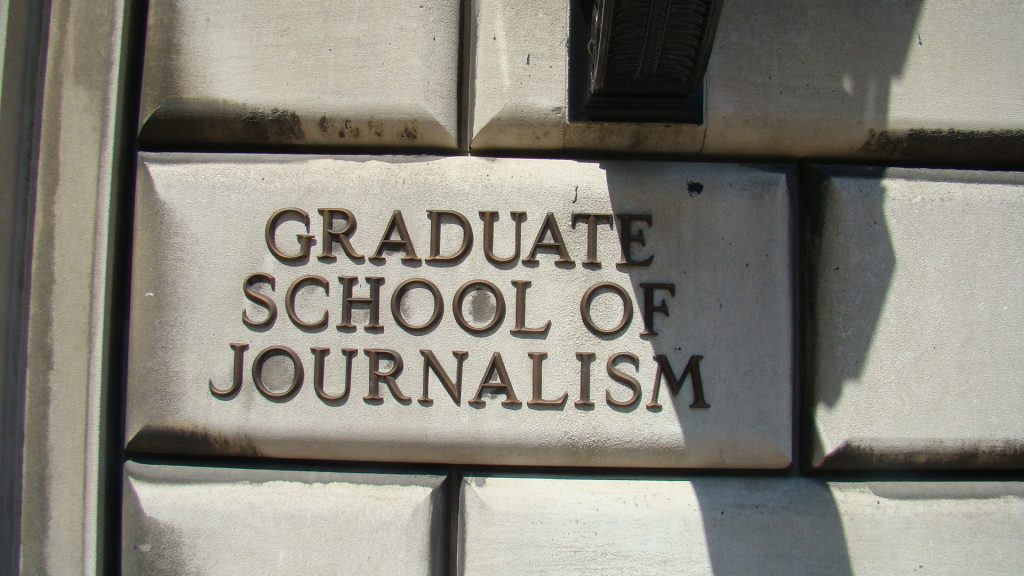

William Deresiewicz on his time at Columbia School of Journalism:
We were not there to think. We were there to learn a set of skills. One of them, ironically, was asking questions, just not about the profession itself: its premises, its procedures, its canon of ethics. I know, because from time to time I tried, and it didn’t go well. This was trade school, not liberal arts school. When a teacher said something, you were supposed to write it down, not argue.
Here is more of his recent piece at Persuasion, “How Pseudo-Intellectualism Ruined Journalism“:
The main thing that I learned in journalism school was that I didn’t belong in journalism school. The other thing I learned was that journalists were deeply anti-intellectual. They were suspicious of ideas; they regarded theories as pretentious; they recoiled at big words (or had never heard of them). For a long time, I had contempt for the profession on that score. In recent years, though, this has yielded to a measure of respect. For notice that I didn’t say that journalists are anti-intellectual. I said they were. Now they’re something else: pseudo-intellectual. And that is much worse.
The shift reflects the transformation of journalists’ social position. This phenomenon is familiar. Journalism used to be a working-class profession. I think of Jimmy Breslin and Pete Hamill, icons of the New York tabloids, the working people’s papers, in the second half of the twentieth century. Breslin’s father was a drunk and a piano player who went out for rolls one day and never came back. His mother was a teacher and civil servant. Hamill’s father was a grocery clerk and factory worker; his mother, a domestic, a nurse’s aide, a cashier. Breslin went to Long Island University but dropped out after two years. Hamill left school at fifteen to apprentice as a sheet metal worker, enlisted in the Navy, and took some art school classes later on (he hoped to be a cartoonist). Both were Irish Catholic: Hamill from Brooklyn, Breslin from Queens, long before those boroughs were discovered by the hipsters and the condo creeps.
Coming up working-class, you develop a certain relationship to facticity. Your parents work with their hands, with things, or on intimate, sometimes bodily terms with other people. Your environment is raw and rough—asphalt, plain talk, stains and smells—not cushioned and sweetened. You imbibe a respect for the concrete, the tangible, that which can be known through direct experience, and a corresponding contempt for euphemism and cant. You develop a gut and a bullshit detector, acquire a suspicion of experts who operate at a remove from reality, which means academics in particular. Hence the recognition, in figures like Breslin and Hamill, that the world is chaotic, full of paradox, that people evade our understanding. Hence their sense of curiosity and irony and wonder. At the source of their moral commitments, they had not rules but instincts, a feeling for the difference between right and wrong. For the masses, they felt not pity but solidarity, since they were of them.
And now for the anti-intellectualism part:
The progressive academic ideology has become the intellectual framework of the field, or at least of its most visible and influential parts: The New York Times, The Washington Post, NPR, et al. More to the point, the field now has an intellectual framework, one that journalists seek, top-down, to impose on the world, on the stories they report. The practice travels under the name of “moral clarity”—as if moral clarity were anything, in this world, besides a very rare commodity (I would love to know what Didion thought of the concept), and as if the phrase meant anything other, in this context, than tailoring the evidence to fit one’s pre-existing beliefs. Facts are now subordinated to the “narrative,” a revealing word: first, because it comes from academia (it is one of those clichés); second, because it’s almost always misused, a particle of garbled theory cloned and memed (as the professor would have wanted). When journalists say “narrative,” they mean “idea.” And it is always an idea they’ve received from someone else.
They think they’re thinking, but they’re wrong. They think that thinking means applying ideas, in the sense that you’d apply an ointment. What it actually means is examining them, reworking them, without fear, without cease. They believe that they are skeptical. In fact, they’re alternately cynical and gullible: cynical toward the other side and gullible toward their own (that they see themselves as being on a side is part of the problem, of course). That is why they’re helpless before the assertions of like-minded activists and academics or of acceptably credentialed experts—incapable of challenging their premises or putting pressure on their arguments. For those who lie outside their mental world, who haven’t taken the courses and acquired the jargon, they feel not kinship but, depending on the former’s demographic category, condescension or contempt.
Few students, at any time, come out of college fully equipped to think. Intellectualism is an arduous, lifelong pursuit—one that involves deep reading, unrestrained debate, and long stretches of quiet thought—and journalism is not a profession that lends itself to its practice. The result is that the kind of elite journalists I’m talking about exist in a state of suspended intellectual development…
Read the entire piece here. And yes, I am a sucker for any piece that mentions Jimmy Breslin.
” (that they see themselves as being on a side is part of the problem, of course)”
Ted Koppel spoke at our college a few years back, and being of a certain age I had seen him on t.v. enough that I honestly wasn’t all that interested in seeing him again. I went anyway and was glad I did; turned out to be one of the best lectures we’ve had in my long time here…and maybe one of the most important, although that might have to be tempered by judging whether it changed anything.
But Koppel talked about journalism as a profession–not in a sense that would clash with Deresiewicz’s emphasis on its past working-class affinities, but in the sense that it was a job with clear goals and methods, such that how well you did it did not depend on your political leanings or what “side” you were on. “Would you ask your dentist their party affiliation to find out how likely they were to do dentistry right?” was something that Koppel asked along the way.
As I recall, Koppel seemed at that moment to be saying with some urgency that this dangerous trend was fixable, if everybody woke up and paid attention. Alas, it seems as if that ship has sailed in our generation, and the consequences may be more dire than we imagine.
Love Breslin, but don’t neglect Pete Hamill; his memoir, “A Drinking Life” is not to be missed. And then, of course, there’s this:
https://www.bobsboots.com/CDs/cd-b28_Hamilltext.html
I have valued the Blood on the Tracks notes since the record came out, but never read the Hamill memoir. Thanks for the recommendation (my copy is on the way).